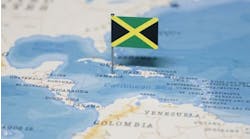Leonard Le Blanc
Internet fiction
The Internet is largely unregulated, and tracing the origin of information as well as site owners and participants on bulletin boards and chat rooms, from which many rumors originate, is difficult. Information on formalized news networks rarely goes unchallenged, but not so Internet information.The Internet began as a medium for the exchange of scientific and technical information among academicians and government agencies and contractors, hence the source of the medium's credibility. Today, governments are hesitant to regulate content on the Internet because of freedom of speech rights. Secondly, there is a strong lobby ready to fight regulation on all fronts.
Opportunists are flocking to the Internet, quite like they did during the development of broadcast radio technology. Governments had to step in to regulate not only the radio medium, but eventually content. Likewise, with television. Is the Internet nearing that stage?
Unfortunately, many of significant purveyors of misleading information on the Internet are investors seeking to manipulate equity markets and business decisions. The financial rewards can be lucrative. And there is virtually no legal accountability for introducing misleading information.
How can Internet information accuracy be verified? Not easily. Sooner or later, some method of content regulation will be applied, but until it does Internet users must practice great caution in using information. Businesses in the petroleum industry should be prepared to answer Internet rumors right away.
Canadian moratoria
With fishing revenue off substantially and unemployment creeping up again, Canada's maritime provinces are looking elsewhere for revenues and employment. Over the next two years, moratoria for oil and gas exploration and drilling are up for repeal. In opposition is the environmental community, which is pointing to the impact on recovering fish stocks.Nova Scotia and British Columbia are considering a resumption of exploration and production activities on the Georges Bank and Hecate Strait - Queen Charlotte Sound areas, respectively. Legislative bodies in both provinces are discussing limited operations as a way of measuring environmental impact and alleviating concern before permitting large-scale leasing.
This experiment might be a lesson for regulators and legislators in the US states to the south. The US sector of the Grand Banks has been walled off to the petroleum industry. The US government is fearful of an environmental event, although tankers transit the region daily. Ironically, many geologists believe that northeast coastal petroleum deposits are mostly natural gas.
If full leasing is permitted on Canada's Grand Banks, and commercial gas deposits are found, development offshore could resemble that in Lake Erie, where there is substantial gas development on the Canadian side and nothing on the US side. Too bad!
Caspian transport risk
The Caspian Basin suffers from remote location, a lack of infrastructure, and long distances to key export ports. Any pipeline from this region or other means of transporting production is likely to become a monopoly, something producers want to avoid. If the actions of the owner of the Baku-Novorossiisk pipeline are any indication of what producers are going to receive when using Russian pipelines to move crude to markets, there should be greater consideration of competing southerly transport routes from the southern Caspian Sea, however more costly.Transneft, Russia's largest pipeline transporter, has been accused of mixing heavy Russian crudes in with lighter Baku grades without approval of the producers and without compensation. Several producers have suspended use of the line, which has also been plagued by technical shutdowns.
Originally, crude transport by Transneft was seen as the likely choice. All other routes to the south would require new pipelines and transit through multiple jurisdictions. But a sample of Transneft's performance to date provides little assurance for producers in meeting delivery obligations. What happens after long-term contracts are signed? Producers have little influence in Moscow and little ability to control contract performance.
Ideally, there should be competition on Caspian export routes to minimize unacceptable performance and possible breach of contract. But if only one pipeline is feasible, then producers should re-evaluate options and risks.
Copyright 1999 Oil & Gas Journal. All Rights Reserved.


